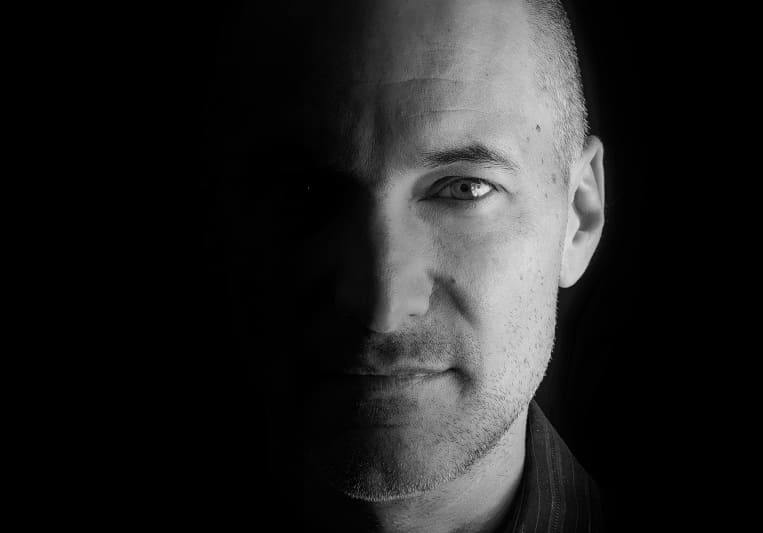
Mix and Mastering Engineer, LA Based film and tv composer/music editor (MPEG), multi-instrumentalist.
After graduating from Berklee in 1987 with a degree in Music Production and Engineering, I moved to LA and had a successful 20+year career in film and TV as a composer and music editor. I have also recorded, mixed, and mastered for labels in LA. Currently, I live in NY where I continue to produce music for film and tv. A recent credit is as mix engineer for Kasim Sulton's (Todd Rundgren, Utopia, Joan Jett, Meatloaf, Blue Oyster Cult, etc.) latest CD, Live Bootleg.
I use ProTools and Digital Performer and have a large library of samples and plug-ins.
My favorite types of music are rock and classical, but I love all music.
Contact me through the green button above and let's get to work.
Interview with Tony DiMito
Q: Tell us about a project you worked on you are especially proud of and why. What was your role?
A: I recently released a CD of 17 original classical piano music pieces. The music was inspired by many of the great classical composers (Bach, Beethoven, Satie, Dubussy, Chopin, Mozart). The music comes from years of work and study, and also follows the rules of traditional counterpoint and theory.
Q: What are you working on at the moment?
A: Currently I'm working with Kasim Sulton (bassist with Todd Rundgren, Utopia, Meatloaf, Cheap Trick, Hall and Oates, Joan Jett, and many others) on original material. We are working on writing and producing a new record.
Q: Analog or digital and why?
A: These days, digital is better for many reasons: Tape has hiss, saturation limits, cost. With higher sample rates, we can now record the highest frequencies (20K, most people can only hear up to 14K) with a smooth sound. Manipulating ones and zeros means instantaneous results, especially now that plug-ins can "look ahead" and begin processing.
Q: What questions do customers most commonly ask you? What's your answer?
A: What is the current state of the music industry? It certainly has changed. The competition has increased and digital pirating has hurt our profits. But we still do it.
Q: What's the biggest misconception about what you do?
A: That it's easy and doesn't take long. Music involves a lot of focus, listening, and adjusting.
Q: What questions do you ask prospective clients?
A: I ask for examples of mixes that should be comparable. And deadlines.
Q: What advice do you have for a customer looking to hire a provider like you?
A: Know that music rarely comes out sounding like how it does in your head. It's up to both parties to stay focused on that vision.
Q: If you were on a desert island and could take just 5 pieces of gear, what would they be?
A: Outboard gear can be looked at in terms of how they change volume, pitch, and time. The sound of rock relies on compression and distortion. It's possible to get great mixes with most DAW's.
Q: What was your career path? How long have you been doing this?
A: I started music in 4th grade and never stopped. After Berklee, I went to LA and worked in bands for a few years before I started working for the studios. See my list of credits at TonyDiMito.com/credits.
Q: Which artist would you like to work with and why?
A: I love Stevie Wonder. It's great to start with a great song. In the end, there's no amount of mixing that can make a mediocre song better.
Q: Can you share one music production tip?
A: With some mixes, the key is to take tracks that were recorded at different times and make them sound like they were played live in the same session. I find that some tracks are mixed too wide. It's important to have a good mono mix. Some people still listen to music through one speaker.
Q: What type of music do you usually work on?
A: I work on all types of music. In the film and tv world, everything comes up, from dramatic underscore to source music (featured songs in a show).
Q: What do you bring to a song?
A: The best thing, in my opinion, to bring to a song is clarity. It should sound good on any set of speakers. You should feel the groove and hear everything while matching the industry standards in terms of dynamic range and frequency range.
Q: Tell us about your studio setup.
A: I am a huge fan of MOTU's Digital Performer. I find the plug-ins are some of the best. Their pitch correction is amazing.
Q: What other musicians or music production professionals inspire you?
A: I'll just list some artists that inspire me: Todd Rundgren, Jellyfish, XTC, Elvis Costello, Earth Wind & Fire, Barry White, Boston, Keane, Bruce Springsteen. I guess you could say I'm a fan of 70's and 80's pop rock and old school R&B.
Q: Describe the most common type of work you do for your clients.
A: Currently I do two types of work: Record production and film and tv music production.

I was the Mix Engineer in this production
- Mixing EngineerAverage price - $500 per song
- Mastering EngineerContact for pricing
- Vocal TuningAverage price - $100 per track
- Time alignment - QuantizingAverage price - $100 per track
- EditingAverage price - $100 per track
- Dialogue EditingAverage price - $200 per minute
- Post MixingAverage price - $200 per minute
I like to make the client happy. If it takes more time, then that's what it takes. I work with a lot of focus and attention to detail.
- Digital Performer
- ProTools



